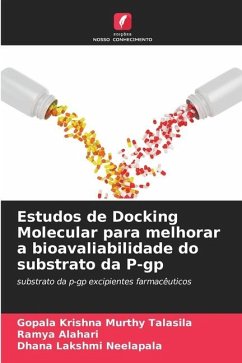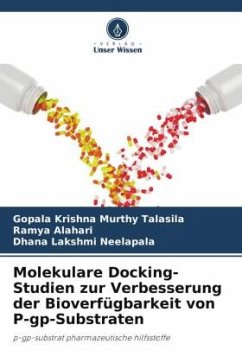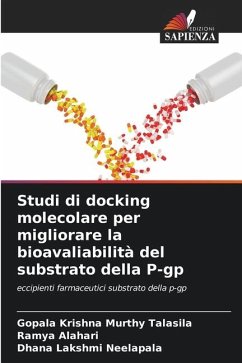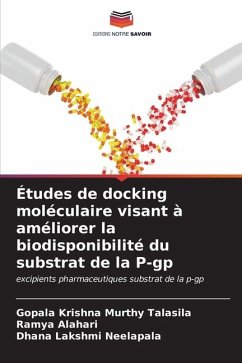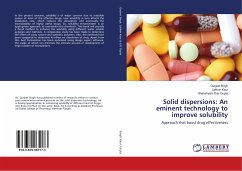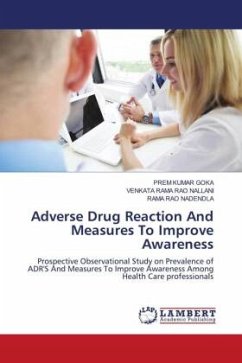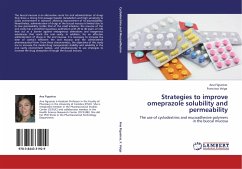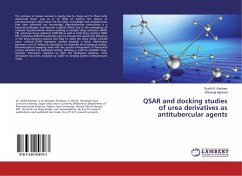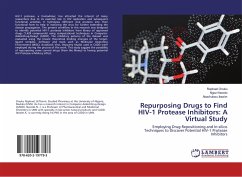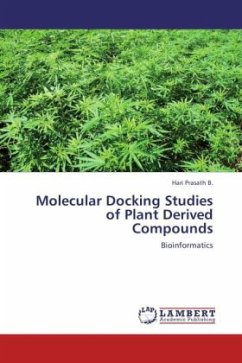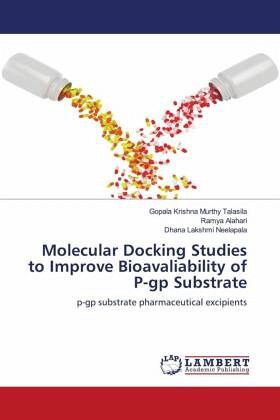
Molecular Docking Studies to Improve Bioavaliability of P-gp Substrate
p-gp substrate pharmaceutical excipients
Versandkostenfrei!
Versandfertig in 6-10 Tagen
29,99 €
inkl. MwSt.

PAYBACK Punkte
15 °P sammeln!
P-glycoprotein (P-gp) known as multi drug resistance (MDR) protein was discovered by Juliano and Ling in 1976 and belong to the adenosine triphosphate (ATP)-binding cassette sub-family B member 1 (ABCB1). Active pharmaceutical ingredients, natural constituents, and pharmaceutically inert excipients have been widely studied as P-gp inhibitors. Three excipients ghee, badam oil and fenugreek oil were selected as excipients as there are enriched with p-gp substrates. Molecular docking studies were conducted to identify the binding energy involved in between p-gp and the components of selected exci...
P-glycoprotein (P-gp) known as multi drug resistance (MDR) protein was discovered by Juliano and Ling in 1976 and belong to the adenosine triphosphate (ATP)-binding cassette sub-family B member 1 (ABCB1). Active pharmaceutical ingredients, natural constituents, and pharmaceutically inert excipients have been widely studied as P-gp inhibitors. Three excipients ghee, badam oil and fenugreek oil were selected as excipients as there are enriched with p-gp substrates. Molecular docking studies were conducted to identify the binding energy involved in between p-gp and the components of selected excipients. The selected drugs affinity with p-gp was also estimated by molecular docking studies. The diffusion of selected drugs through the intestine membrane was also estimated. Good correlation was observed between the docking score and the estimated diffusion rate from the diffusion data. Thus, these studies conclude that the molecular docking studies are beneficial to select the suitable excipients for improving the bioavailability of reported p-gp substrates.



